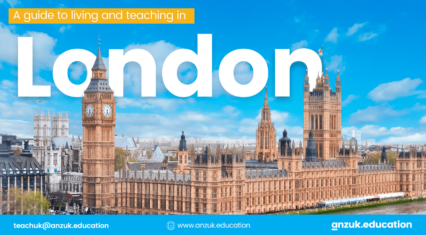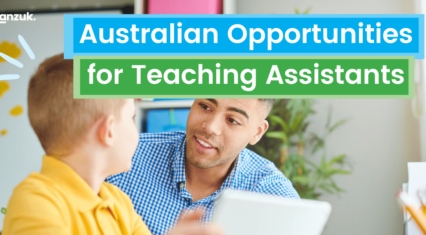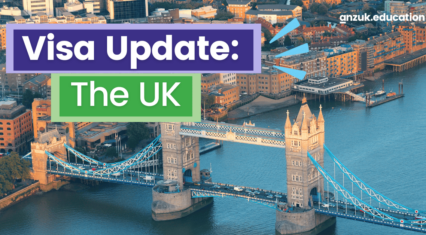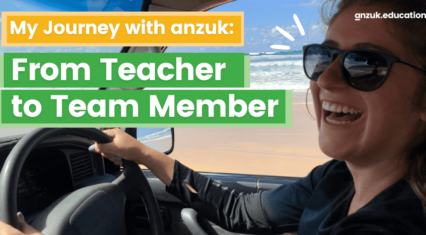Search
Get Started
The below is a transcription from our “COVD-19: Early Childhood and OSHC Q&A”. If you would prefer to watch the video, please scroll to the end of this page.
The views and opinions expressed in this article and video are those of the authors. Please use the World Health Organisation or Department of Health to stay up to date on the COVID-19 pandemic. Please also note that with the changing nature of this situation, some of what was communicated may only be relevant during the time it was stated.
Will the anzuk offices close or will it depend on preschools and nursery staying open?
Ultimately, if the government decides to do a full lockdown and our office needs to shut, then that’s what happens. But right now as it stands, we’re planning on working through this for as long as we can. Currently, we’re not meeting with new educators face to face, we’re doing those over webcam. And that’s just part of our obligation to provide social distancing in the workplace, just like every other workplace out there is trying to take on these social distancing rules and also going above and beyond. We haven’t been told that we have to do that, but it’s just a precaution that we’re taking.
Will the service provide true updates about the breakout?
Health and wellbeing of educators, the centres and the children is our main priority. So we want to make sure we’re looking after all three parties involved. Now, we are in constant contact with all our partner centres, so we speak to them every single day, we’ve got really strong relationships with them and they’re constantly giving us updates. Every centre has been issued with the recommended guidelines by the Department of Health and they’re informed by us and our precautionary measures as well. So yes, they do, and we always keep in contact with them ourselves, making sure they’re up to date with what our procedures are as well, day-to-day.
As an early childhood teacher, what is the likelihood that a casual position will be available as the number of children attending is rapidly falling?
This is a question which we don’t know the answer for sure. Childcare centres, kindergartens and schools have all seen a drop of occupancy recently, and that does have an impact on how much they booked casual staff. However, right now, we are still filling shifts, although there has been a drop. But there are some that are suggesting that there will be a higher demand, even higher than potentially what we would expect if centres stay open into winter. We’re hoping that centres do stay open and we’re hoping that as we get through this COVID-19 situation, that as the situation improves, people will start putting their children back into care and that will create increased demand for our workers.
I think it’s very important to add in at this point here, this is going to depend a lot on community and the behaviours of Australia as a society. If we can self-isolate, if we can space ourselves and keep a safe distance from people and we can reduce the curve and we can ensure that the virus doesn’t spread, the restrictions will get lifted and we’ll start going back to work. The biggest problem and the biggest challenge we face as a supplier for casual workers into the childcare sector is, childcare places are basically available and are utilized by working parents.
So the sooner parents go back into the workforce, as soon as we get back into everyday life, the more likely it is that centre numbers will go back up again. And we all play a part in that. We all have to make sure that we’re vigilant with that spatial distancing, making sure that we’re self-isolating, making sure that we’re being very responsible citizens. We all have a part to pay, our educators, our clients, all of our teams have a part to pay. Now it comes down to the behaviours of us as a community, how fast we get through this.
What protection can we take when working?
This is always a tricky one, and it’s one we’ve had quite a lot in the last week and a half, two weeks. In terms of what we’ve been told as far as the Victorian Government, they haven’t changed the regulatory space requirements in early childhood, unlike primary and secondary where they’ve put in the 1.5-meter rule, they haven’t changed it necessarily in early childhood at this stage. So it is about being vigilant and monitoring what’s going on around you and tracking early signs of sickness. It’s just about being vigilant at this stage and just keeping an eye out in the service.
As advised by the government such as keeping a distance from kids, is it possible in a practical way? We haven’t had anything come through that says otherwise, so we’ll keep you up-to-date on this and anything that comes through will be given to you straight away. But at this stage, they haven’t changed the rules on what’s going on in early childhood. So it is about being vigilant and taking care.
What is the future for casual childcare educators, as I can see the government encouraging working from home at the moment and I can see parents keeping their children home?
Right now, centre numbers are low for a few reasons. Some of that is because there’s less work available off the back of this, it’s having an impact on our economy. Some people have lost their jobs. Some people are choosing to take their children out of care because they fear that their children are going to get the virus. Ultimately, we’re hoping that once we get through this, the economy will bounce back quickly and childcare centres will be full again. I don’t know how long that’s going to take and hopefully, sooner rather than later.
What support will I receive if schools and early learning centres get shut down?
The federal government has released several financial support packages for those affected by the Coronavirus. That support is going to be accessed via the MyGov website. So everybody I imagine will be familiar with the MyGov website, that’s the place to access those sorts of support packages.
Who should I refer to ask financial assistance?
So I assume very similarly to the last question, this one. What I would add though is, normally, with government assistance, you’re required to fill out what is called a separation form. However, because this is quite an unprecedented situation and also because we don’t know when it will get busy again, it could be next week, it could be four weeks, it could be three months, we just don’t have the answer to that. But what we do know is that you don’t currently need to spill out a separation form in order to access those benefits. And that is a change from the norm and that’s because of the Coronavirus situation. And that also means that once work comes back on and when there’s more work available for you in your area, it means that we can provide that to you straight away.
In this COVID-19 pandemic, as I know that lots of centres are getting very quiet and probably they won’t need casual workers anymore?
We still don’t know the full effect and we’re not going to know the full effects over this short period of time, it’s going to take months and months to probably to really figure out what’s happening across all sectors really.
Unfortunately, we can’t see into the future regarding this specifically, so right now, it has affected us. I know there has been a short, smaller amount of shifts coming through for you guys, so we just need to manage it the best we can. The more we work together and get through this, then the quicker it’ll be managed. Social distancing, making sure you’re following the correct hygiene practices, the quicker we can get through this. But long answer short is, yes, many industries have and will suffer from this.
What measures will be taken to safeguard the health of educators in early childhood settings?
There’s quite a number of things. The health and wellbeing of the educators that work for us as well as our own internal staff is a primary concern to us. And that’s why for some time anzuk has been performing job site analysis on the sites of schools, childcare centres, kindergartens, preschools, outside of school hours care facilities. And ultimately, by going through that process, they’re signing off to say that what they’re providing is a safe environment. Also, the Department of Health provides really clear guidelines to the centres of what to do if they think they may have been exposed to a COVID-19 case or in fact if one has been confirmed.
So we have had at least one situation where there has been a case confirmed within a school, and the school was shut immediately and the appropriate steps were taken in order to ensure that there wasn’t any wider transmission of the virus. On top of that, we’ve also provided some guidelines and the Department of Health has provided a number of guidelines. Just the general things that you are hearing all over the media at the moment, things like washing your hands frequently, maximising the distance between people, keeping one and a half meters apart where possible, understanding that in an early childhood setting, that’s not always possible. And being vigilant with children that may appear to be ill, if a child looks to be carrying a virus, report that to the centre manager straight away. Whereas in the past, you might let those things slide. We’ve just got to be a bit more vigilant around those sorts of things.
Have any of the early childhood educators tested positive for COVID-19 in Victoria?
No. Not at this stage. We haven’t had anything fed back to us that any of our educators tested positive. And that’s the same in New South Wales as well.
It’s also the same across our primary and secondary educator pool, nobody in our immediate casual network has tested positive to COVID-19 that we’re aware of.
You can’t avoid germs at the best of times, how will you avoid them now?
Yeah. I mean, it’s one of those things that no matter what industry you’re in, you’re going to get exposed to some kind of germs. Yes, we recognise obviously that working with children, especially in an early childhood setting, that you are a little bit more susceptible and probably exposed a bit more to germs. The best advice I can give is just really please refer to the Department of Health. They’ve put out very clear guidelines on how to minimise your risk, such as things we’ve talked about previously and I’m sure you’ve all heard of them, but sneezing into your elbow, washing your hands, keeping your social distance. All the centres are aware of it, we’re aware of it. And just always, if you’re ever unsure about any of them at all, just please refer to the Department of Health as well. And there’s plenty of guidelines in there. And they have questions and answers that we can probably refer to as well.
Can we wear a mask to work?
At this stage, the Department of Health has not advised that educators should be wearing masks. I did a bit or research earlier on around this, and I actually have a quote here, I’m going to read from the Department of Health. They said most people will not benefit from wearing a surgical mask. Masks are a benefit to people who are sick, so they don’t cough on others and healthcare workers who are frequent close contact with sick people. So just at this stage, the Department of Health hasn’t actually advised that you should be wearing a mask.
Would we get paid sick leave?
There are two parts to this question. Generally speaking, if you’re a casual educator, and I’m assuming this has come from a casual educator, you’re paid a casual loading, which is an extra 25% compared to what you would get if you’re employed on salary and on PAYG.
And this generally covers your sick leave and your annual leave. However, in the event that you’re injured, you’ve injured yourself or you’ve contracted something like COVID-19, I believe you would be eligible for work cover claim in this particular case. Now, you have to meet the criteria of the particular work cover in your particular state. However, certainly from what I’ve read anyway, you would be eligible if you had been given the virus while you were actually at work. So in that situation, you could make a claim and then we would support you back to work, as we do with all work cover claims.
Should we get an increased minimum of hours paid?
Minimum hours are determined by fair work and written into the relevant award. The most common award that we use in the early childhood space is the children services award. And that stipulates what the minimum hours are. So ultimately, it’s out of our control that one. The thing about anzuk and other agencies is essentially we’re an on-hire provider of a service. So if you’re not working, we don’t actually get paid. And so we’ve got an invested interest to ensure that you’re working and that we’re getting as many people to work as we can, as many of our educators work as we can. It’s just that right now, there’s a number of things that are really impacting that.
How do you think this will affect our jobs in the following months ahead?
Ultimately, we can’t be certain. There are two things at play that affect the work if we’re referring to casual work. One of those is the absence of the workers, the full-time workers, which is going up at the moment. And then the other one is the occupancy within the centre or the number of children attending, and that’s going down at the moment. So there are multiple things that will affect that. The main driver at the moment in terms of the lack of work is the lack of children attending services. But we’re hopeful that that will turn around sooner rather than later. But ultimately, we don’t actually know. Nobody actually knows the answer to that one, unfortunately.
How much work is coming in at the moment and is it slowly dropping off?
Compared to the same time last year for example, right now, this week and last week, there was significantly less work than the same time last year. And that, as I’ve talked about, is largely to do with the lack of children attending childcare at the moment.
What will happen to teachers who need to update their CPR training during the crisis? Will they be able to continue teaching if their first aid runs out and they can’t access training with the social distancing rules?
This is another tricky one as we’re yet to learn whether first aid courses, CPR is classed as an essential process. So we will stay on top of this one, and hopefully, it is. There will be other options hopefully, we’ll have to move online, similar to a lot of companies out there. They might have to have reduced classes or online, but at this stage, we aren’t 100% sure on what their plans are.
If you are an educator whose CPR is about to run out for the next week, two weeks, three weeks, let us know. We’ll obviously already see that it’s about to expire, because, at the end of the day, it is up to the services themselves, whether they let someone in without a CPR. A
I believe the National Quality Framework states that there needs to be someone who can attend to a child immediately with the relevant first aid qualifications. So some services have a policy which we have to adhere to, which is essentially they want every single educator to have every single certificate up to date while others have enough staff already that have immediate access to the children, and therefore don’t require their casual educators to always hold those qualifications. And then there’s a whole range of different levels of that as well. So essentially, we feel a shift based on what we’re asked based on the needs of the early childhood service.
Early Childhood Teachers are not being called to private centres as the numbers are lower and they don’t need us for ratios even if qualified staff are away. They’re replacing us with diplomas and less qualified staff. Is that true?
There’s a couple of components to that question, so I’ll do my best to answer it. Essentially, the centre’s are required to meet the certain qualification and ratio requirements under the National Quality Framework and the specific department requirements for each state.
At this stage, there has been no change to these requirements in any of the three states that we work, at least that I’m aware of. There has been a drop in demand for casual educators across the market due to occupancy levels, but I don’t know whether that is within one type of setting versus another or one type of governance. So I couldn’t tell you whether that was more the case with private centres versus not-for-profit or community-run services. I’ve not noticed anything to that effect.
Have some centres shut down temporarily due to COVID-19?
Yes, there have been some childcare centres that have shut down due to COVID-19, I believe, and there’s certainly been a number of schools also.
Is there any financial support from anzuk or the government for casual workers who are international students?
That is a very good question. That’s something that I know that has been discussed for people that may not be eligible for the government financial support. We don’t have anything that’s concrete yet. We’re certainly doing some research into it now. We’ve also made some contact with the Department of Education just to try and get a position on where they sit with potentially supporting international educators. It’s a really tough question because as a service supplier, we don’t employ casual educators to support other revenue streams in the business, we’re purely an on-hire supplier. Therefore, when we put an educator out, we charge for the educator, we pay the educator, and then obviously our expenses and our staff costs, and whatever’s leftover remains with anzuk.
So we’re trying to get as much information as we can about that, and we’re also trying to get a position from the department. We’ll certainly put that out over the coming couple of weeks. We still haven’t heard back. As you can imagine, there’s a hell of a lot going on at a federal and state level at the moment, putting money into the stimulus packages, and right now, we just don’t have a clear answer for that. But it’s certainly in the back of our minds and we will be able to update all the international educators probably in the next couple of weeks on where we stand with that.
So you guys don’t get paid if educators don’t go to work?
That is 100% true. anzuk doesn’t get paid if educators don’t go to work. So this is a challenging situation for us as a company, as it is our educators who are getting less work because of the situation.
Healthcare workers now receive a risk allowance as part of their pay benefits, will we be entitled to this as well due to the obvious increase in the risk of infection?
That’s not something that is our decision, I think the healthcare workers negotiate that as part of their enterprise bargaining agreements, and because they are healthcare workers. I’m not aware of there being anything with regards to educators for that.
That’s also the position from the Health Department and the federal government, and it’s also consistent with what’s coming from overseas, in that right now, there aren’t enough cases to build any real data around how COVID-19 affects children and affects young people.
Are we eligible to get government payments as casual workers?
Yes. I don’t believe that there’s any restriction on you because you’re a casual worker. In fact, if I read correctly, that even if you’re still working, but you’re not working as much as what you were previously, I think that could in itself be enough to access some of the government assistance. But obviously, the government assistance is means-tested, so it’ll depend on your earnings and your assets and all those sorts of things.
The best people to speak to regarding that would be Centrelink or going through the MyGov website. There are links, as I said, this email will be going out tomorrow morning. There are a number of links which link to fact sheets specifically regarding that. So I would read those first tomorrow morning to see whether you think you might be eligible.
Do governments give assistance to people who haven’t done any shifts? Look, I think the answer to that is yes. The government assistance is for people that meet the criteria, and that’s, I think you need to earn under a certain amount and you can’t have too many assets. If you’ve got $3 million properties, then you’re probably not going to get assistance, but if you don’t have too many assets and you meet the other criteria, which is largely to do with how much you’ve earned, then I believe you’re eligible. That’s only including permanent residents and citizens, as previously alluded to.
Do you have any advice for people on the 417 visa who cannot access government financial aid? Does anybody want to answer this one?
As you won’t be able to access government aid being on a working holiday visa. My biggest piece of advice I suppose right now if you’re on a working holiday visa is, you’re not limited to just working in early childhood. I’ve seen many places online that are looking for casual workers, so there is additional work out there, just not primarily in education right now. Feel free to reach out to your consultant, making sure you guys are looked after is our priority, so more than happy to give you some suggestions as well.
What would you say the drop in the number of shifts in percentage?
I don’t have the percentage figures in front of me, but what I can say is, we’ve seen a significant drop off from Tuesday last week, and that has increased each day until today. So with schools closing this week in Victoria, I think that’s probably going to exacerbate the issue. But again, people are going to have to go to work at some point, and if they’re going to go to work, their children are going to need to be looked after. So I don’t think this is going to be forever, but it’s going to be for this little while, and I don’t have the answers to when that’s going to change, unfortunately. But we all hope here for your sake and our sakes that that happens sooner rather than later.
We’re planning, and we don’t know the answer to this, but we’re certainly planning to have a spike in requirement midway through term two and three. Because once people do start going back to work and they have confidence that we’ve beaten that period of potential infection, people will want to go back to work. It’s not going to be easy for people to be working from home, it’s a challenging thing to do, so as soon as we do get direction from the federal government, and as soon as that sentiment starts to improve, people are going to want to go back to work really quickly. And as a result of going back to work, they’re going to need to put their kids into care.
What you need to remember is, we’re moving into our peak season for illness across early childhood, we’re moving into the peak season for professional learning. We always get a spike in our shifts and our requirements from quarter two right through to quarter three and four, so we’re certainly hopeful that that’s going to happen midway through term two. That’s what we’re preparing for and that’s what we’re planning for. We’ll still be recruiting and we don’t want anybody at there to think that we’re recruiting over the top of anybody that’s on our list, we’re certainly recruiting for an increase need through the middle of term two.
Dan Andrew tweeted earlier today saying, “Throughout it all, our teachers, school staff and early childhood educators haven’t stopped doing what they do best, helping students learn, keeping our kids safe and explaining this overwhelming situation as best they can. So I just wanted to say thanks for everything.” We’re so thankful for everyone out there doing the best they can and trying to work with what we’ve got. We’re in a situation that we don’t know fully what’s going on and neither do you, and neither the government, so yeah, day by day, we’re doing the best we can. So I think if we keep supporting each other and looking out and keeping in touch and staying positive, we’ll get through it and hopefully come back stronger than ever.
My wife read me a post from Facebook yesterday and it said, “Parents are just about to realise that it’s not the educator’s fault.” As a teacher myself, I thought there’s nothing truer than that. Parents have no idea what they’re in store for over the coming four weeks. And as a parent with three young children myself, I’m very supportive of their teachers and all of their staff at childcare and at school and I think in three to four weeks, our parents are going to be pulling the hairs out wanting support with their kids. And it’s just one of those things, when you’re with them all the time, that respite, it’ll just show them how valuable educators and the services are to what they do.
COVID-19 Q&A – Early Childhood and OSHC | anzuk.education from anzuk Education on Vimeo.






